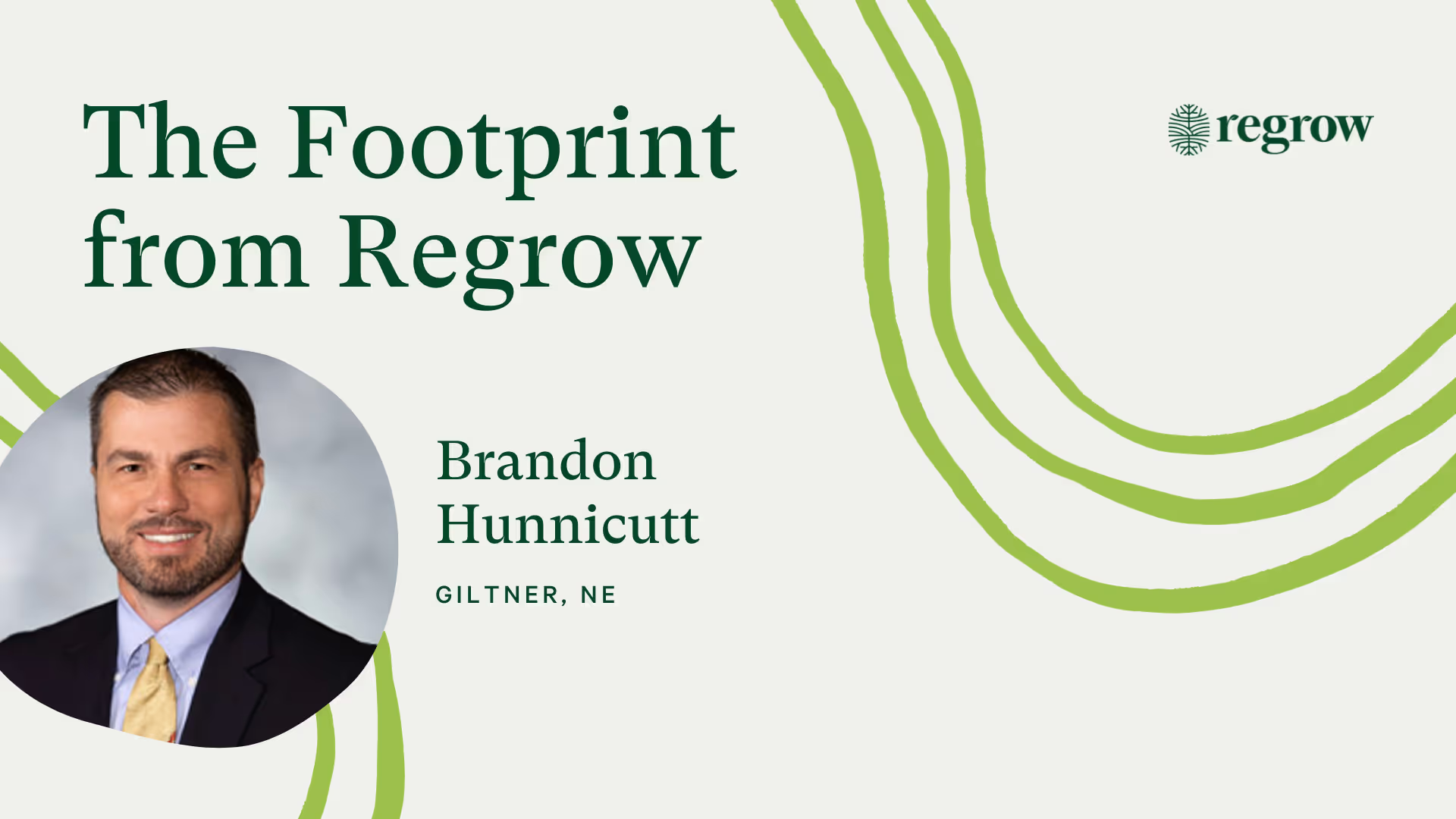I thoroughly enjoyed my conversation with Brandon. In this blog post, we continue our conversation focused on tools and practices Brandon is using on his farm.
Anastasia: “Thank you for sharing these practice challenges. It seems like there is room for us as an industry to provide the farmer with more consistent expectations on both the input supply side as well as on the buyer /off-take side. Assuming a farmer identifies acres they want to adopt sustainable practices on, what would the incentive need to be to change?”
Brandon:
“There are currently a lot of companies approaching farmers, offering various carbon programs. This causes some anxiety, given the programs cannot be directly compared, and a farmer entering into a contract based on the practices might not see exactly what the outcome will be that they have been promised to be compensated for. In a grain marketing situation with an elevator or an ethanol plant, farmers might rely on the same price that is being offered to them all. The situation with environmental outcomes and payments for soil organic carbon (SOC) sequestration is a lot more vague. Farmers might inadvertently think: “What other opportunity am I missing out on?”
That’s why it’s important to have transparent markets, which I believe we will get there over time. The exciting, and challenging, aspect for me is that Field to Market and the FieldPrint Calculator will be the key component to figuring out some this data and helping farmers understand the improvements needed to be made on their own farms to help with sustainability challenges and carbon markets.
Tools like what Regrow is developing can be really helpful, both
- from the perspective of filling in the cropping and tillage history automatically to minimize the time that it takes for the farmer to manually enter data
- the scenario planning tool that allows the farmer to see what the likely outcomes are from the different practices.
I see both of these being critically important for adoption.
You cannot expect a farmer to be comfortable adopting new practices if all they see is the cost associated with it. Companies have to demonstrate that it is also something that the suppliers or buyers are willing to compensate the farmer for. You also need to offer an opportunity to see the outcomes that each of the practices can generate, for example. X metric ton in SOC sequestered. This will allow the farmer to compare the prices they might be hearing offered from other buyers.
Anastasia: Thank you so much, Brandon for sharing these thoughts! Regrow is very passionate about including farmers in the process, and really we value your insights. Sharing these is important to drive a fair and balanced market opportunity with positive environmental outcomes.
Brandon: Thank you for the conversation! I believe it is an important topic that farmers should be sharing their thoughts and opinions so we are a part of the conversation and help drive the change that will create a positive impact for everyone.



